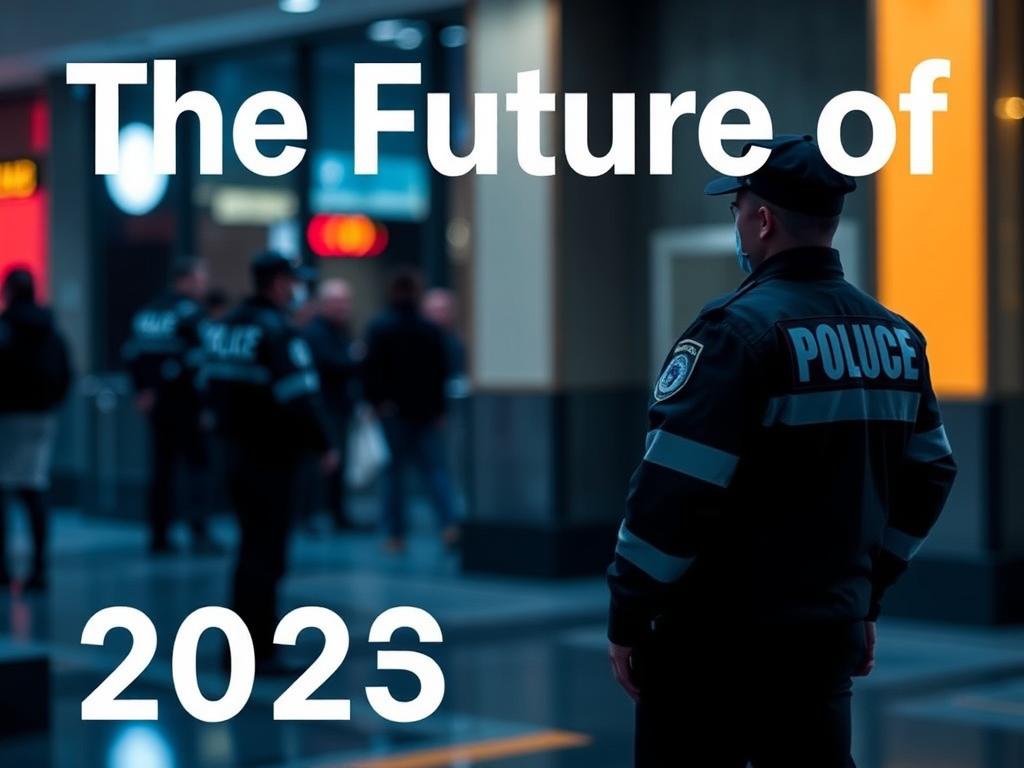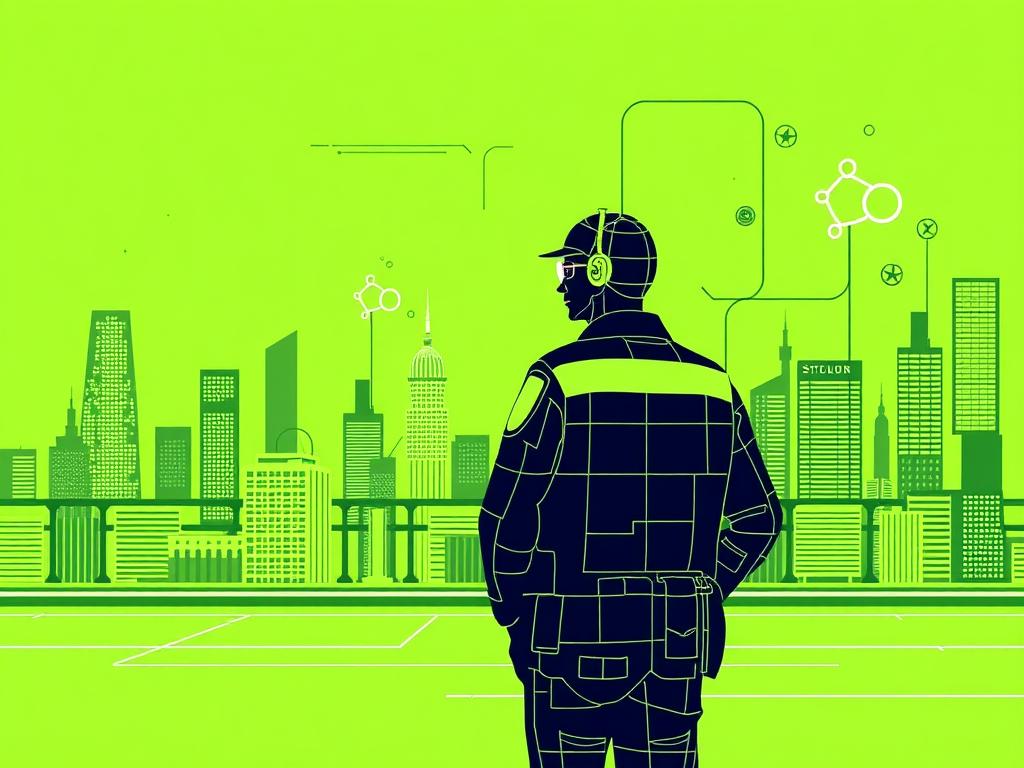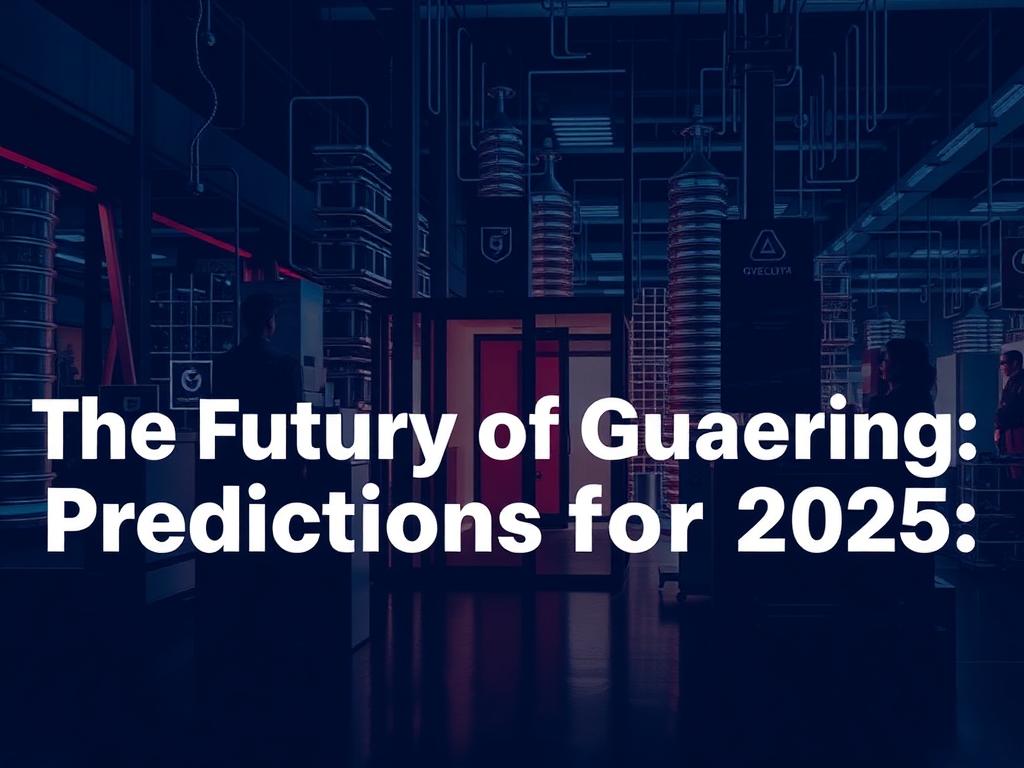Introduction to the Evolving World of Security Guarding
The world of security guarding is undergoing rapid and remarkable changes, and by 2025, we can expect even more advanced transformations. Security guarding, once thought of as a traditional field focused mainly on physical presence and vigilance, is evolving into a sophisticated blend of technology, human skills, and strategic intelligence. Whether it’s protecting corporate offices, residential complexes, public spaces, or special events, the role of security guards is becoming more dynamic and technology-driven. In this article, we will explore the future of security guarding with insightful predictions for 2025, emphasizing emerging trends, innovative tools, and the evolving skillset security professionals will need to thrive.
Technological Advances Reshaping Security Guarding
The future of security guarding is inseparable from the rapid advancements in technology. From artificial intelligence (AI) to drones and robotics, technology is revolutionizing how security services are provided and how effective they are in real-time response situations. Let’s break down some of the most important technological trends guaranteed to shape security guarding by 2025.
Artificial Intelligence and Machine Learning
One of the biggest game changers for security guarding is artificial intelligence. AI algorithms can analyze enormous amounts of data from security cameras, sensors, and access control systems much faster than human guards can. Predictive analytics will enable proactive threat detection rather than reactive responses. For example, AI-powered surveillance systems can detect suspicious behaviors, unusual movement patterns, or unauthorized access attempts, sending alerts to security personnel immediately.
Security guards will increasingly partner with AI-driven systems to monitor facilities and respond to potential incidents faster and with better accuracy. Thanks to machine learning, these systems will continuously improve, becoming smarter and more reliable.
Drones and Unmanned Aerial Vehicles (UAVs)
By 2025, drones equipped with cameras and sensors will be commonplace in security operations. They provide a bird’s eye view of large areas, allowing guards to monitor places that are difficult or dangerous to access on foot. Whether it’s patrolling vast construction sites, warehouses, or borders, drones will enhance real-time situational awareness.
Furthermore, drones can be deployed quickly in emergencies to assess hazardous environments or track suspects without exposing human guards to unnecessary risks. Enhanced mobility and coverage make drones an invaluable tool in the future of security guarding.
Robotics and Automated Patrols
Robotic security guards have started to emerge as practical additions to security teams. These robots can patrol designated areas, perform routine checks, and detect anomalies using built-in cameras and sensors. They don’t tire or lose focus and can work in collaboration with human guards.
By 2025, we expect robotic patrollers to be widely accepted in security guarding, especially in high-risk or nighttime environments. They can provide an extra layer of protection and allow human guards to focus on complex judgment and intervention tasks.
Biometric and Access Control Innovations
Security in 2025 will emphasize enhanced biometric identification methods. Facial recognition, iris scans, fingerprint readers, and even voice recognition will become integrated into access control systems widely. This will reduce reliance on traditional keycards or passwords, which are vulnerable to theft or duplication.
Security guards will oversee and verify biometric checkpoints, ensuring only authorized personnel enter secure zones. These technologies will also reduce entry waiting time, enhancing overall operational efficiency in settings such as airports, corporate campuses, and government facilities.
The Changing Role of Security Guards in 2025

As technology advances, the role of security guards is changing dramatically. While technology assists in routine tasks and surveillance, human security professionals will take on more strategic and interpersonal responsibilities.
From Watchmen to Security Strategists
Security guards are no longer just «watchmen» observing entrances; they are becoming critical security strategists who assess risks, manage crises, and intervene effectively. With sophisticated surveillance tools at their fingertips, they can focus more on threat analysis and decision-making.
Security professionals will also play key roles in emergency response coordination, helping to manage evacuations, crowd control, and first aid if needed. Effective communication skills and emotional intelligence will be crucial for security guards to de-escalate tense situations and maintain safety.
Continuous Training and Upskilling
To keep pace with evolving technology and threats, ongoing training will be essential for security guards. Training programs will focus on interpreting AI-generated data, using new surveillance equipment, understanding cybersecurity basics, and honing customer service skills.
Companies providing security services will invest heavily in professional development to ensure their guards are up to date on the latest tools and best practices. Certifications and specializations in areas such as cybersecurity integration and crisis management will become more valuable in the recruitment and retention process.
Collaboration Between Humans and Machines
Rather than being replaced by technology, security guards will work alongside machines in a symbiotic relationship. AI-powered cameras might detect an event and alert a human guard, who then makes the judgment call and coordinates the response.
This hybrid model will enhance overall security effectiveness—machines will improve monitoring, and humans will apply critical thinking and nuanced intervention where required.
Future Security Guarding Industries and Application Areas
The scope of security guarding is broad, and by 2025, certain industries and application areas will exhibit especially notable growth and innovation.
Smart Cities and Urban Security
As urban areas develop “smart city” infrastructure, security guarding will integrate with city-wide systems using sensors, cameras, and data analytics. Security guards will be part of larger networks monitoring traffic, public safety, and emergency management.
Smart city security will focus heavily on preventing crime using predictive analytics and prompt response, as well as ensuring cybersecurity in connected public systems.
Critical Infrastructure Protection
Protecting vital infrastructures such as power plants, water supplies, transportation networks, and communication systems will gain even more significance. Enhanced physical and cybersecurity measures will converge, and security guards will serve as vital eyes and ears to detect threats at these critical points.
Event Security and Crowd Management
Large events like concerts, festivals, and sports competitions require detailed planning and real-time security management. With increasing attendance and potential risks, security guarding here will rely on drones, crowd density sensors, and AI threat analysis to coordinate efforts efficiently and maintain safety.
Residential and Commercial Complexes
In residential and commercial properties, the integration of smart locks, video doorbells, and biometric access will support security teams. Guards will primarily serve both as supervisors of these systems and as on-site responders, ensuring a safe and welcoming environment for occupants.
Challenges and Ethical Considerations in the Future of Security Guarding

While new technologies bring many benefits, they also come with challenges and ethical considerations that must be preemptively addressed.
Privacy Concerns and Data Security
The increased use of surveillance cameras and biometric data collection raises questions about personal privacy. It will be critical for security agencies to implement strict data protection policies and ensure compliance with privacy laws.
Security guards and organizations must maintain transparency with clients and the public regarding the scope and purpose of surveillance operations.
Dependence on Technology
Over-reliance on technology can erode basic security skills. Guards must remain well-trained in traditional security techniques and maintain critical thinking to avoid complacency.
Bias and Discrimination Risks in AI Systems
AI systems can reflect and even amplify human biases if not carefully designed. For example, facial recognition may have difficulties accurately identifying certain demographic groups, leading to potential discrimination or false alarms.
Security companies need to ensure that their AI tools undergo rigorous testing to minimize bias and uphold fairness.
Table: Technologies Shaping Security Guarding by 2025
| Technology | Description | Impact on Security Guards |
|---|---|---|
| Artificial Intelligence (AI) | Enhanced surveillance analytics & predictive threat detection. | Faster identification of risks, augmented decision making. |
| Drones | Remote aerial surveillance & rapid response deployment. | Extended coverage and safer access to hazardous zones. |
| Robotic Patrols | Automated area patrols with sensors and cameras. | Supports routine checks; frees guards for strategic tasks. |
| Biometric Access | Facial recognition, fingerprint, iris scans for secure entry. | Improved security checkpoints and access control management. |
| Smart Sensors & IoT | Connected devices monitoring motion, sound, and environmental changes. | Real-time alerts and integrated situational awareness. |
Preparing for a Career in Security Guarding in 2025
If you’re considering a career in security guarding in the near future, preparation and forward-thinking are essential. Here are some practical steps to stay ahead in this evolving field.
- Invest in learning about new technologies, including AI basics and drone operation.
- Enhance your communication and crisis management skills to handle complex situations.
- Seek certifications related to cybersecurity and biometric system management.
- Gain familiarity with privacy laws and ethical security practices.
- Stay physically fit and mentally alert to adapt to fast-paced environments.
Security guarding careers in 2025 will be rewarding for those who embrace technology, continual learning, and human-centered skills.
Industry Leaders and Innovations to Watch

Certain companies and startups are setting the pace by introducing groundbreaking solutions for future security guarding needs. From AI-driven surveillance providers to companies creating robotic patrollers, these innovators are shaping what security guarding will look like soon.
Organizations investing in integrated smart security—combining physical, digital, and human elements—will lead the market and offer enhanced safety experiences.
Conclusion
The future of security guarding by 2025 promises an exciting blend of cutting-edge technology and enhanced human roles. Security guards will harness AI, drones, robotics, and biometric innovations to provide smarter, faster, and more reliable protection than ever before. However, alongside these advancements come challenges, including privacy concerns, ethical responsibilities, and the need to maintain core security skills. By embracing ongoing training, ethical practices, and a collaborative mindset between humans and machines, the security guarding industry will evolve into a more strategic and impactful field. For professionals and organizations alike, staying informed and adaptable will be the key to thriving in this transformative era of security guarding. Whether patrolling urban smart cities or protecting critical infrastructure, security guards will remain indispensable guardians of safety and trust in the years ahead.